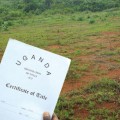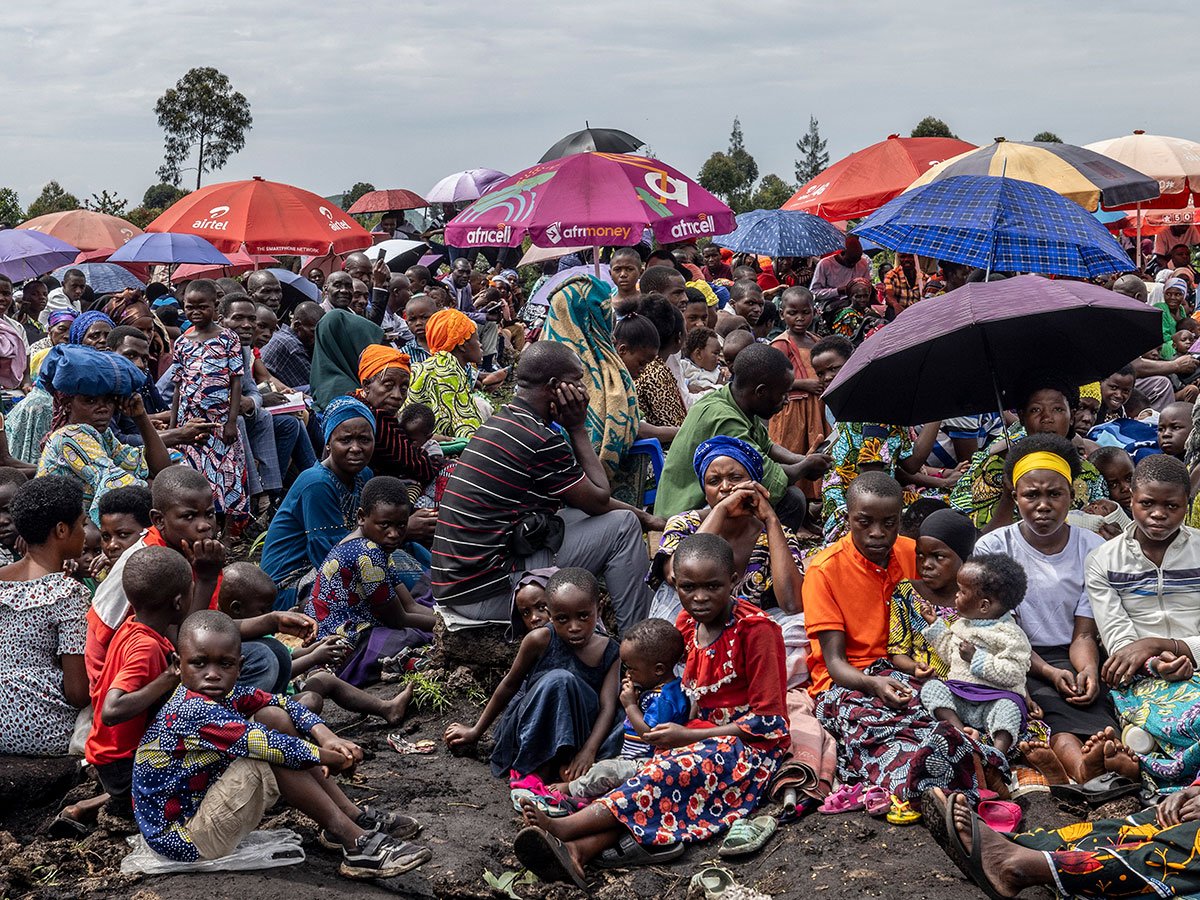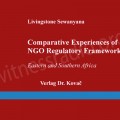African governments owe three times more debt to Western banks, asset managers and oil traders than to China, and are charged double the interest, according to research released today by Debt Justice. Western leaders through the G7 have attributed the failure to make progress on debt restructuring to China,[1] but the data shows that this is mistaken.
Just 12% of African governments’ external debt is owed to Chinese lenders compared to 35% owed to Western private lenders, according to the calculations based on World Bank data.[2]
Furthermore, interest rates on private loans are almost double those on Chinese loans, while the most indebted countries are less likely to have their debt dominated by China.
The figures have been released ahead of the G20 Finance Ministers meeting on 15-16 July in Indonesia. Campaigners are calling on Western countries, particularly the UK and US, to compel private lenders to take part in the G20’s debt relief scheme, the Common Framework. Three African countries have applied for the Common Framework, none have yet had any debt relief.
Tim Jones, Head of Policy at Debt Justice, said:
“Western leaders blame China for debt crises in Africa, but this is a distraction. The truth is their own banks, asset managers and oil traders are far more responsible but the G7 are letting them off the hook. China took part in the G20’s debt suspension scheme during the pandemic, private lenders did not. There can be no effective debt solution without the involvement of private lenders. The UK and US should introduce legislation to compel private lenders to take part in debt relief.”
Yungong Theo Jong, Head of Programmes at the African Forum and Network on Debt and Development (Afrodad) said:
“Multilateral and private creditors remain the biggest creditors to African governments. Loans from China have increased Africa’s indebtedness, but by far less than Western lenders. All lenders must participate in debt relief. Western governments must lead the way by making private lenders cancel debts.”
The calculations show that the average interest rate on private sector loans is 5%, compared to 2.7% on loans from Chinese public and private lenders.

12 of the 22 African countries with the highest debts are paying private lenders over 30% of their total external debt payments (Cabo Verde, Chad, Egypt, Gabon, Ghana, Malawi, Morocco, Rwanda, Senegal, South Sudan, Tunisia and Zambia). In contrast, debt payments to Chinese lenders are over 30% in just six of the 22 countries (Angola, Cameroon, Republic of Congo, Djibouti, Ethiopia and Zambia).
IMF Managing Director Kristalina Georgieva has called on the UK and US to pass legislation to stop private lenders blocking debt relief agreements.[3] President of the World Bank David Malpass has made similar calls.[4] Virtually all international debt contracts are governed by New York or English law[5], with 90% of bonds of countries eligible for the G20’s debt relief scheme are governed by English law.[6]
In 2020 and 2021 China took part in the G20’s debt service suspension initiative, but the scheme only suspended 23% of the external debt payments of countries which applied, because private and multilateral lenders were not included.[7] Western governments need to make their private lenders take part in debt restructurings to convince China to also move further on debt relief.
Notes
[1] For example the G7 Finance Ministers said in May 2022: “With regards to the implementation of the Common Framework, it remains essential that all relevant creditor countries including non-Paris Club countries, such as those, like China, with large outstanding claims on low-income countries facing debt sustainability challenges, contribute constructively to the necessary debt treatments as requested.” http://www.g7.utoronto.ca/finance/220520-communique.html
[2] All the figures and calculations are in the briefing ‘Who is African governments’ external debt owed to?’ available at https://debtjustice.org.uk/wp-content/uploads/2022/07/Who-African-governments-debt-is-owed-to_Media-Briefing_07.22.pdf
Summary tables are:
External debt of African governments by creditor grouping, and average interest rate
| Creditor grouping |
External debt to creditor grouping as percentage of total external debt |
Average interest rate |
| Private creditors (excluding those based in China) |
35% |
5% |
| Chinese creditors (public and private) |
12% |
2.7% |
| Other governments |
13% |
1.4% |
| Multilateral institutions |
39% |
1.3% |
Share of external debt payments from 2022 to 2028 by creditor grouping (% of total external debt payments), 22 African countries with external debt payments over 15% of government revenue
|
Private (not including China) |
China public and private |
Other governments |
Multilateral |
| Angola |
29% |
59% |
2% |
10% |
| Cameroon |
18% |
34% |
13% |
35% |
| Cabo Verde |
33% |
2% |
25% |
40% |
| Chad |
33% |
8% |
14% |
44% |
| Congo, Rep |
6% |
50% |
24% |
21% |
| Djibouti |
0% |
64% |
11% |
25% |
| Egypt |
36% |
3% |
16% |
45% |
| Ethiopia |
23% |
45% |
7% |
25% |
| Gabon |
40% |
16% |
7% |
37% |
| Gambia |
0% |
0% |
25% |
75% |
| Ghana |
56% |
11% |
8% |
24% |
| Kenya |
29% |
27% |
11% |
33% |
| Malawi |
72% |
5% |
4% |
20% |
| Mauritania |
0% |
14% |
30% |
57% |
| Morocco |
36% |
1% |
14% |
49% |
| Mozambique |
7% |
28% |
33% |
33% |
| Namibia |
43% |
4% |
5% |
48% |
| Rwanda |
37% |
9% |
20% |
34% |
| Senegal |
37% |
9% |
20% |
34% |
| Sierra Leone |
0% |
5% |
14% |
82% |
| South Sudan |
81% |
11% |
0% |
8% |
| Tunisia |
31% |
0% |
24% |
45% |
| Zambia |
45% |
37% |
8% |
10% |
| Median |
32% |
11% |
14% |
34% |
[3] “We also are pressing for some of the changes, legal changes that need to happen in New York, in London, to close loopholes for vulture funds and others to prevent debt resolution. We are discussing how we can bring more contingency measures in debt agreements, how to press for more debt transparency.”
https://www.imf.org/en/News/Articles/2022/04/21/tr220421-transcript-of-the-imfc-press-briefing
[4] “Given the depth of the pandemic, I believe we need to move with urgency to provide a meaningful reduction in the stock of debt for countries in debt distress. Under the current system, however, each country, no matter how poor, may have to fight it out with each creditor. Creditors are usually better financed with the highest paid lawyers representing them, often in U.S. and UK courts that make debt restructurings difficult. It is surely possible that these countries—two of the biggest contributors to development—can do more to reconcile their public policies toward the poorest countries and their laws protecting the rights of creditors to demand repayments from these countries.” https://www.worldbank.org/en/news/speech/2020/10/05/reversing-the-inequality-pandemic-speech-by-world-bank-group-president-david-malpass
[5] https://www.imf.org/~/media/Files/Publications/PP/2017/pp113017third-progress-report-on-cacs.ashx
[6] https://debtjustice.org.uk/press-release/g20-debt-suspension-request-90-of-bonds-governed-by-english-law
[7] https://debtjustice.org.uk/press-release/g20-initiative-leads-to-less-than-a-quarter-of-debt-payments-being-suspended
Source: debtjustice.org.uk


 MEDIA FOR CHANGE NETWORK2 weeks ago
MEDIA FOR CHANGE NETWORK2 weeks ago
 SPECIAL REPORTS AND PROJECTS2 weeks ago
SPECIAL REPORTS AND PROJECTS2 weeks ago
 MEDIA FOR CHANGE NETWORK3 days ago
MEDIA FOR CHANGE NETWORK3 days ago
 SPECIAL REPORTS AND PROJECTS2 weeks ago
SPECIAL REPORTS AND PROJECTS2 weeks ago
 MEDIA FOR CHANGE NETWORK2 weeks ago
MEDIA FOR CHANGE NETWORK2 weeks ago
 MEDIA FOR CHANGE NETWORK5 days ago
MEDIA FOR CHANGE NETWORK5 days ago
 MEDIA FOR CHANGE NETWORK3 days ago
MEDIA FOR CHANGE NETWORK3 days ago
 NGO WORK4 days ago
NGO WORK4 days ago






























